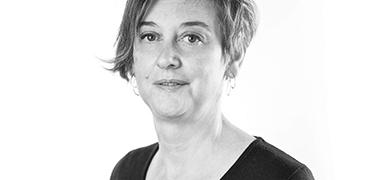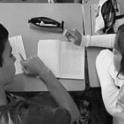We are celebrating the 10-year anniversary of Debats d’Educació by giving the educational community the opportunity to air its views

I am a mother, a teacher and a graduate in Pedagogy. I train working teachers and head teachers at schools, I give lectures and I advise parents’ associations.
I have coordinated the “Family/school Shared Action” Programme for more than thirteen years.
Coauthor of the “Créixer en Família” (Growing up in a Family) materials for the Department of Welfare and the Family, and a trainer of motivators for parents’ groups.
Having supported teaching professionals and parents in various programmes makes it easier for me to have a better understanding of what is essential and what changes in this family/school relationship are vital.
The three things I’ve learned
Bringing up children needs time spent together. A work/family life balance should help parents and children spend time together
In order to grow and be brought up happy and healthy, children need an adult (a couple) to love them and take responsibility for them. If that adult is a biological parent (mother or father), so much the better. This means that, in a society that considers children growing up happy and healthy to be a priority, everything possible is done to make it easier for parents and children to spend as much time as possible together.
In achieving a work/family life balance, priority must be given to parents and children spending time together. Freeing up work time in order to meet family responsibilities rather than separating the two generations of the family so adults can carry on working.
For States, administrations and businesses, investing in small children means a commitment to families spending time together. An investment of this kind is a very important investment (in mental health, in preventing failure at school) for the future.
The responsibility for beginning a significant change in the family/school relationship is the school’s.
The school is an organised, planned institution, which has to provide itself with a mission and values. The teaching professionals in the school are the ones responsible for beginning an important and meaningful change in the family/school relationship.
A relationship of responsibility, not blame; of hope, not nostalgia; of patience, not haste; of trust, not blind optimism. A relationship of healing, not condemnation.
Because of this, the initial and continuing training of teachers needs to be extended to include the relationship with families as one of the core aspects of the job of teaching. And management teams in schools need to be stimulated to reflect and promote a style of relationship with families that includes much more than just tutoring tasks.
The families, each based on their own abilities to taking responsibility for their children’s education, will cooperate in making this relationship better as they feel trusted by the educational community.
New channels and forms need to be found for the responsible involvement of parents in their children’s education at school, going beyond the stereotypes of school councils and parents’ associations
We need to rethink what the participation and involvement of families in schools’ activities means today and how it makes sense. Enough evidence exists now that some formulas inherited from the past no longer serve the purposes for which they were created.
We need to look at other countries and other groups of families organised into collectives to move forward towards other forms and channels allowing diverse objectives, organisations and actions depending on places, situations, people and needs.
The school and the teachers also need to rethink themselves as members of an educational community in which parents represent very important social capital, knowledge and active citizenship, so that they can open up responsibly to everyone together helping to provide more and better education.













 The texts published on this website are, unless otherwise indicated, covered by the Creative Commons Spain Attribution 3.0 licence. You may copy, distribute, transmit and adapt the work, provided you attribute it (authorship, journal name, publisher) in the manner specified by the author(s) or licensor(s). The full text of the licence can be consulted here:
The texts published on this website are, unless otherwise indicated, covered by the Creative Commons Spain Attribution 3.0 licence. You may copy, distribute, transmit and adapt the work, provided you attribute it (authorship, journal name, publisher) in the manner specified by the author(s) or licensor(s). The full text of the licence can be consulted here: